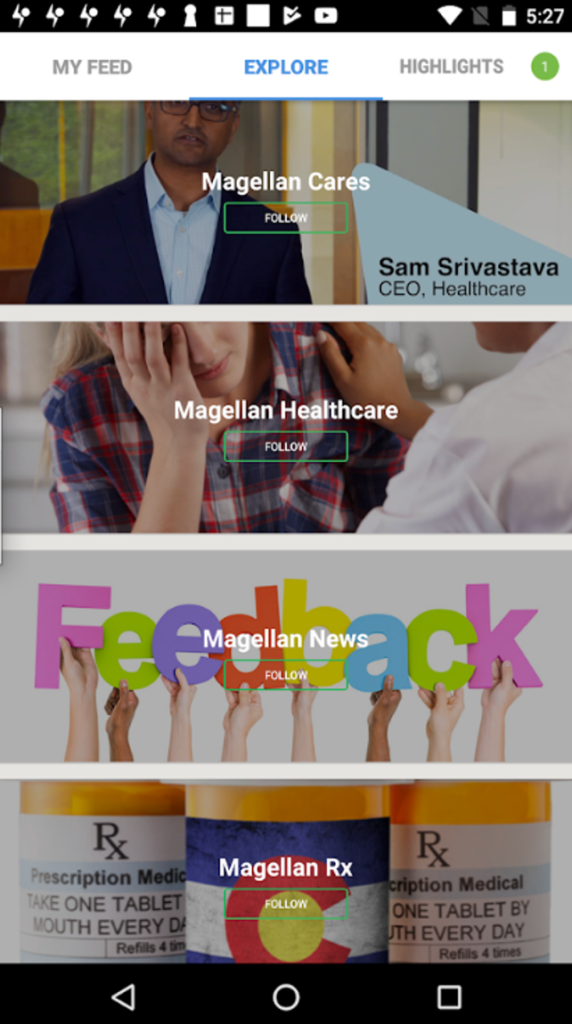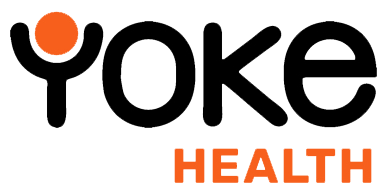Healthcare Comms – 3 Trends for 2020
Posted in Digital Healthcare Insights
1. From intranet to remote NHS workers – Make it mobile (first)
95% of UK households now own at least one mobile phone, and businesses in every industry now design for both mobile and desktop as a matter of course.
But for healthcare, ‘just’ being mobile-ready might not be enough.
Designing for mobile first is now an essential step for organisations that hope to overhaul their communication with a globe of patients or mammoth employee bases.

Shining example…
Billion dollar healthcare solutions firm Magellan Health consists of almost 11,000 employees (at the last count). Almost half of these employees work remotely, which makes communication complex. Safe to say that their internal communication is a challenge.
MagellanNOW was created to counter this – a mobile-based app that acted as a 21st century employee intranet that provides real-time, relevant content.
2. Tech will Make for a Critical Patient Touchpoint
The overloaded world of primary care is shouting out for a solution. And there might be promise found in technology.
Mhealth is continuing to pick up pace. Now patients are ready and willing to use technology to cut wait times and the pressure on the NHS.
In the 2018 report ‘Using Technology To Ease The Burden On Primary Care’ it was found that…
- Two thirds of responders (66%) said being able to email their GP to seek medical advice would be an option they would use
- Almost two-thirds (63%) said they had used a trusted NHS website or an app to check symptoms before seeking advice from their GP
- 60% said having a GP appointment via video calling services such as Facetime, Skype or WhatsApp.
“It’s right we look at ways to cut unnecessary appointments, save thousands of journeys, reduce traffic and pollution and make the NHS more efficient.
For many people, care can be delivered more timely and conveniently closer to home, by specialists at the GP surgery or by using technology in new and exciting ways”.
– Stephen Powis, NHS England’s Medical Director
Shining example…
Dr Sirfraz Hussain, a GP at the Moss Side Family Practice, Manchester, has used Skype to communicate with patients for more than eight years. Dr Hussain says that it has revolutionised his surgery.

“I can tell that your respiratory rate is about 80, your capillary refill less than two, your blood pressure is fine, you’ve got a rosy colour so you’re not anaemic and your eyes are white so you’re not jaundiced.
The key thing is the face. If you’re worried about one of your patients, this is a great check — do I need to see this person today, tomorrow or in two weeks?”.
– Dr Sirfraz Hussain, GP at the Moss Side Family Practice, Manchester
3. Cyber Security Should Remain a Key Focus for Both Public and Private Healthcare Providers When Moving Forwards with New Technology
Whenever new technology is introduced, along with it comes the introduction of risk. And the healthcare industry is not immune. In fact, it’s increasingly becoming a prime target for hackers.
Your employees represent both the gravest danger to your cyber security, and your most robust line of defence.
When introducing new tech, your workforce must be well versed on potential problems and threats. There should be ongoing education sessions and passive reminders about good IT practices.
“For the safety of patients, it is critical to ensure that the data, devices and systems that uphold our NHS and therefore our nation’s health are secure.
This report highlights weaknesses that compromise patient safety and the integrity of health systems, so we are calling for greater investment in research to learn how we can better mitigate against the looming threats of cyber-attacks”.
– Lord Darzi, co-director of the Institute of Global Health Innovation (IGHI)
Shining example…
Data hubs are cutting costs, saving time and improving patient outcomes. But as they do so, the stakes of cyber-attacks are rising.
Anonymisation, healthy access policies and extra-long passwords are the three-step combination to keeping the data in data hubs as safe as possible.

Monthly Archives
- July 2023
- July 2020
- June 2020
- May 2020
- April 2020
- March 2020
- February 2020
- January 2020
- December 2019
- October 2019
- September 2019
- August 2019
- July 2019

